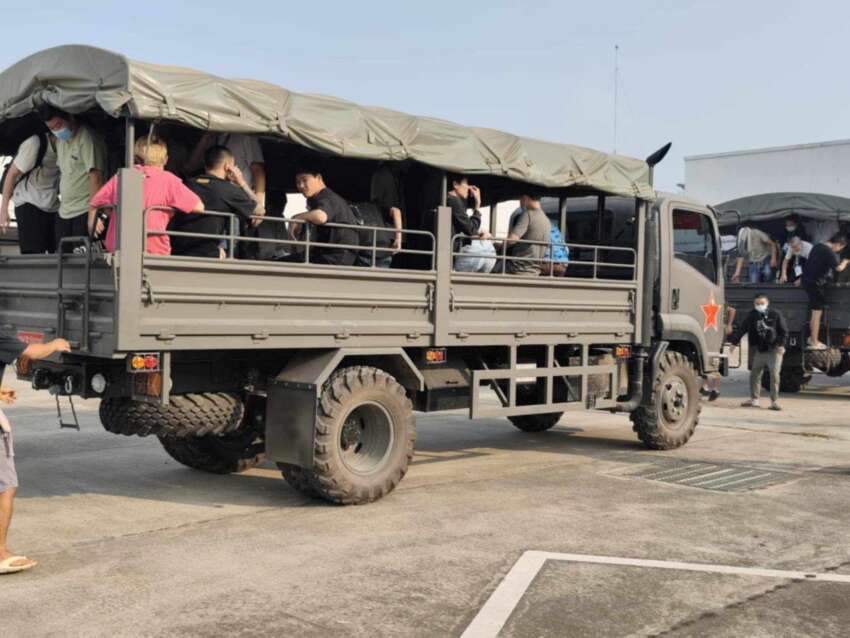
Despite pressure from China and Thailand leading to crackdown operations by the military council-controlled Border Guard Force (BGF) on scam syndicates in Myawaddy township along the Thai-Myanmar border, fraudulent operations continue to function in various locations throughout the area. While some scam groups have relocated their operations, others continue to operate from their original locations by recruiting new workers. Sources connected to these operations confirm that Chinese nationals remain present and scam operations are continuing as usual in Myawaddy.
The scam operations are primarily concentrated in areas such as Shwe Kokko, Kyauk Htet, Mae Tao Talay AA Park, and KK Park. These locations house workers from over 30 countries, including China, India, Malaysia, Indonesia, Vietnam, Laos, Cambodia, Pakistan, and Ethiopia. Many of these workers are victims of human trafficking or are involved in various fraudulent activities. While the BGF claims to be conducting search and arrest operations targeting these scam compounds, operations continue to persist. As of April 8, the BGF has reportedly repatriated 7,104 people through Thai authorities to their respective countries.
The Thai government has implemented measures to combat these operations by cutting off electricity, fuel supplies, and internet connections to the Myanmar side. However, fuel continues to enter Myawaddy township through various channels. Despite higher prices, there is no shortage of fuel, which allows the scam operations to continue functioning. Border traders report that while fuel prices have increased, supply remains steady through alternative routes and methods. The continued availability of fuel enables these fraudulent operations to maintain their activities despite the attempted crackdown.
The persistence of these operations highlights the challenges in effectively combating transnational crime in the border region. While authorities claim success in rescue and repatriation efforts, with thousands of individuals being returned to their home countries, new workers continue to arrive, and operations adapt to circumvent enforcement measures. The situation reflects the complex nature of cross-border criminal activities and the difficulties in implementing effective control measures, particularly in areas where governance and law enforcement face significant challenges.



